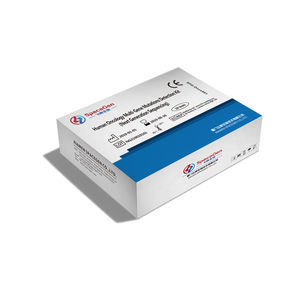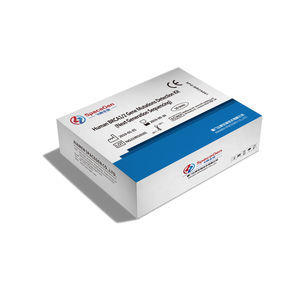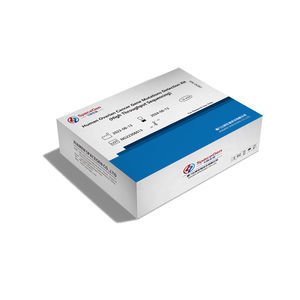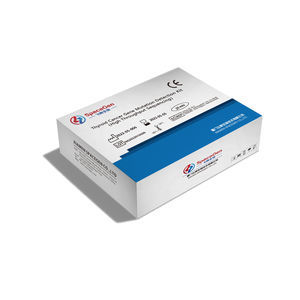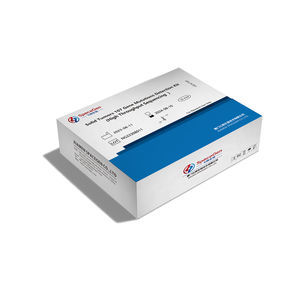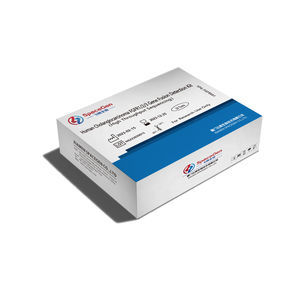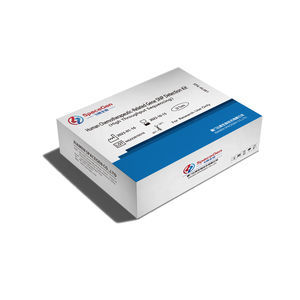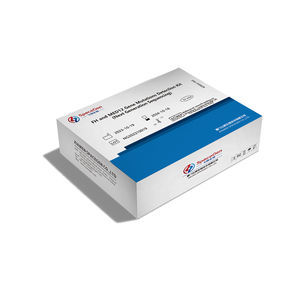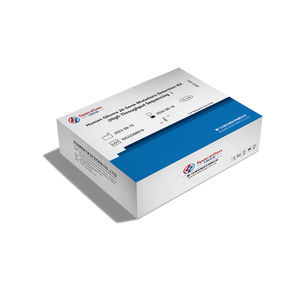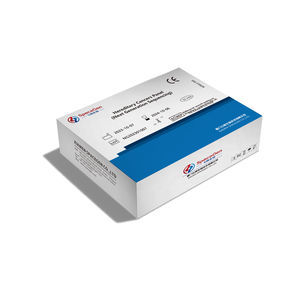

- Company
- Products
- Catalogs
- News & Trends
- Exhibitions
Colorectal cancer detection kit Genecan®oncologyfor BRAF mutationsfor KRAS mutations
Add to favorites
Compare this product
Characteristics
- Applications
- colorectal cancer
- Application field
- oncology
- Tested parameter
- for BRAF mutations, for KRAS mutations, DYPD, for NRAS mutations, for UGT1A1 gene, for PIK3CA Gene, for ERBB2 gene, for MSI gene, for TP53 gene
- Sample type
- tissue
- Analysis mode
- for sequencing
- Result display time
4 h
Description
The risk of colorectal cancer is closely related to lifestyle. Increased intake of food from animals and overweight due to sedentary are associated with the risk of colorectal cancer. Other risk factors include alcohol intake, smoking, eating red or processed meat. Proper supplementation of calcium, cereals, fiber and dairy products can reduce its risk. In recent years, with the improvement of social and economic level. The overall incidence rate and mortality rate of colorectal cancer in China showed a significant upward trend, and the proportion of colorectal cancer increased year by year.
Application of molecular detection in colorectal cancer:
With the development of deep research and detection level of tumor related molecular markers such as Ras, BRAF, mismatch repair / microsatellite instability (MMR / MSI), reasonable detection technology and application have become an important part of clinical practice.
APPLICABLE PEOPLE
1. Recommendation on stage I ~ III colorectal cancer: before adjuvant treatment decision of colorectal cancer.
2. Recommendation on stage IV colorectal cancer: before the decision of first-line treatment plan.
3. Formulate diagnosis and treatment strategies and schemes according to different molecular characteristics of colorectal cancer.
DETECTION SIGNIFICANCE
1. It contains RAS, BRAF and HER2 genes to predict the response to anti-EGFR monoclonal antibody, BRAF/MEK inhibitor or anti-HER2 therapy.
2. It contains marker MSI site of immunosuppressant Pembrolizumab.
3. It contains UGT1A1 and DYPD genes related to chemotherapy, which can adjust the medication of irinotecan, fluorouracil, capecitabine and Ftorafur.
Catalogs
No catalogs are available for this product.
See all of SPACEGEN‘s catalogsRelated Searches
- Assay kit
- Blood assay kit
- Immunoassay assay kit
- Plasma assay kit
- Infectious disease detection kit
- Analysis software
- Molecular test kit
- Respiratory infection test kit
- Whole blood detection kit
- Optical assay kit
- Clinical assay kit
- Fluorescence assay kit
- Viewer software
- Real-time PCR test kit
- Research assay kit
- Laboratory software
- Windows software
- Laboratory detection kit
- Cell assay kit
- Oncology test kit
*Prices are pre-tax. They exclude delivery charges and customs duties and do not include additional charges for installation or activation options. Prices are indicative only and may vary by country, with changes to the cost of raw materials and exchange rates.

